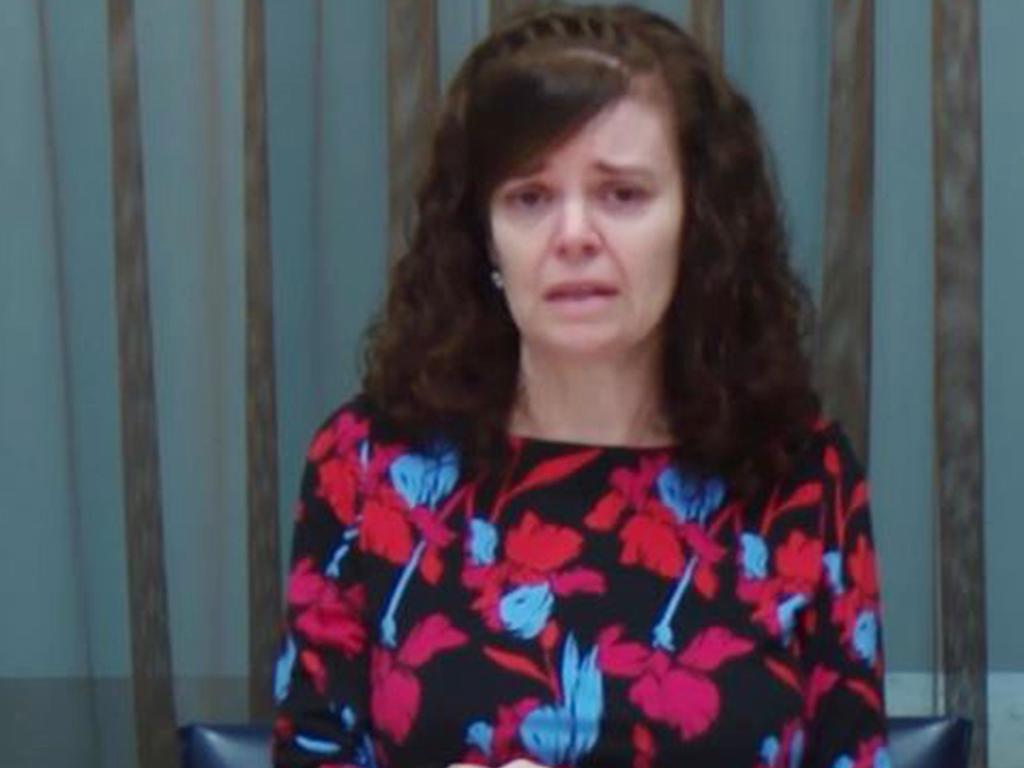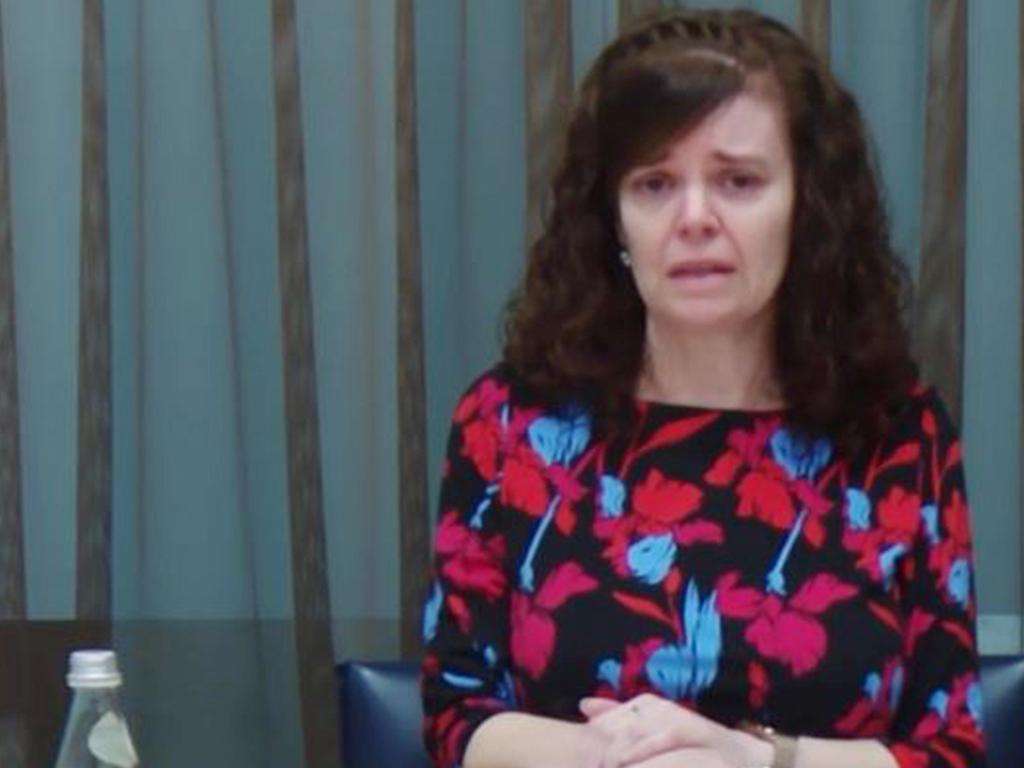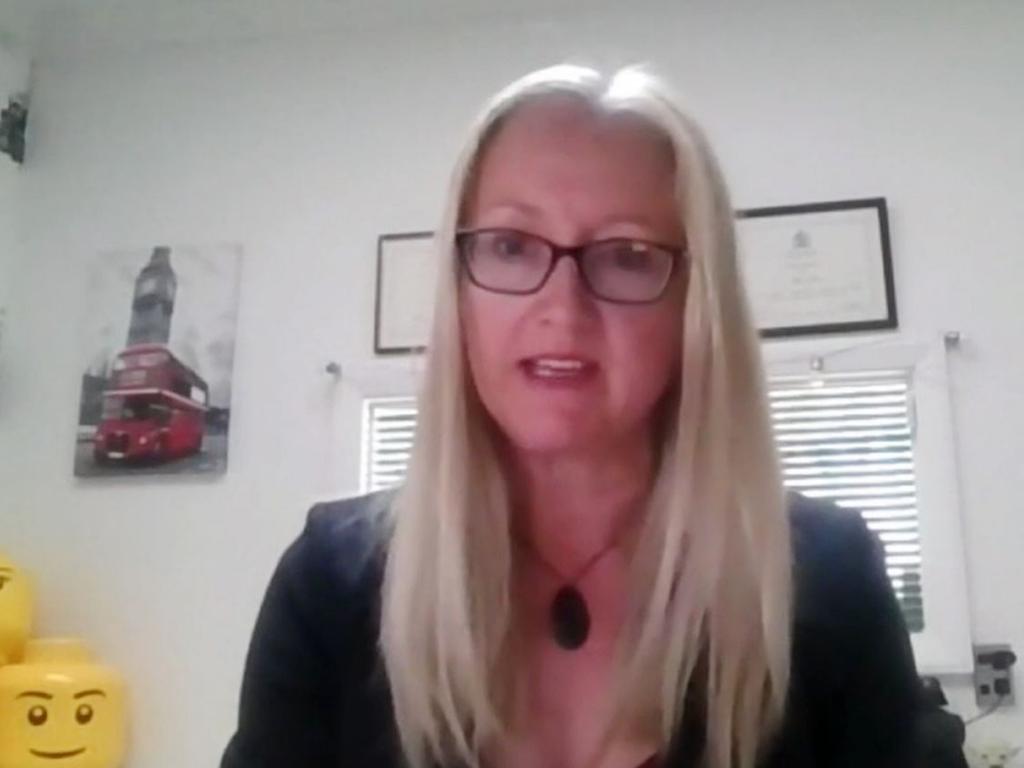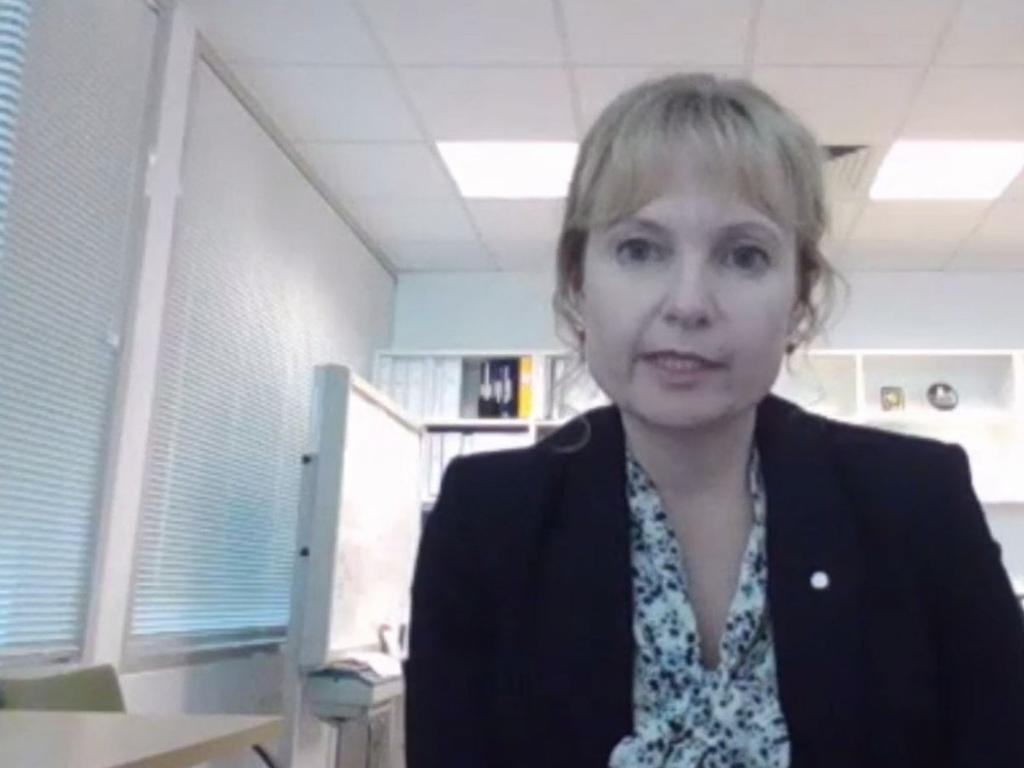DNA lab boss denies misleading officers amid ‘distressing’ questioning
Facing heavy questioning, the scientist at the centre of an inquiry probing laboratory test failures maintained she acted in the community’s interest and was not the villain the prosecution described.

QLD News
Don't miss out on the headlines from QLD News. Followed categories will be added to My News.
Sidelined managing scientist Cathie Allen believes she’s been depicted as a “Disney villain” during a $6 million commission of inquiry probing the catastrophic failure of her laboratory to test samples collected for major crime investigations.
A tearful Ms Allen on Tuesday said the questioning and evidence given during the six-week inquiry had been “really distressing”, claiming she had the best interest of the community in mind when she made her decisions.
It came after a barrister acting for the Queensland Police put to her that the service could not have faith in a laboratory with which she had any connection, saying she had lied and misled officers to serve herself as it suited.
Ms Allen refuted that assertion, along with a proposition that she had altered a historic document subpoenaed by the commission to make it appear a change made in 2013 had been at the request of police.

Ms Allen and her colleague Justin Howes were both stood down from their positions in the wake of a damning interim report by commissioner Walter Sofronoff KC which found thousands of criminal investigations may have been compromised by the lab’s practices.
Throughout the inquiry, Ms Allen has been accused of misleading police into accepting the controversial decision not to test samples below a certain threshold.
She has also been forced to deny she presided over a toxic workplace culture in which scientists were afraid to speak up for fear of reprisals.
“You’ve been depicted can I suggest to you through the questions you’ve been asked and the evidence of some of the others called in this commission as some kind of Disney villain, is that your impression,” Ms Allen’s barrister Matthew Hickey asked her.
“Yes that’s how I feel,” Ms Allen said.
“I find it quite distressing, it upsets me as you can see, I’m just trying to do the best job that I can because I care about the community and I want to try to provide as many resources to the lab so that they can do the best possible job that they can.
“I work really hard to do that. I’m a human being and I make mistakes and it’s been really, this past 12 months has been really distressing and has had an enormous impact on my mental and physical health.”

Ms Allen’s tearful testimony came after she was questioned by barrister acting for the Queensland Police Service Jeffrey Hunter.
He put to her that an email before the commission made it appear she had discouraged scientists in the lab from “reworking” samples, even if it had the potential to correct wrong information given to police.
“If you read that email on face value without the context, yes that’s how it appears,” she said.
“Well do you accept that if your approach to this issue had the effect of discouraging scientists from undertaking reworks that you’ve created a situation whereby incorrect results have gone undetected?,” he asked.
She replied: “No because a reporting scientist would put forward the request and the requests were always accepted and they were able to undertake the rework and provide information back to the QPS.”
“But that assumes that the scientists ask you for permission to rework in the first place, my question is premised upon the proposition that your attitude to reworks had the effect of discouraging scientists from doing them and my question is if it had that affect do you accept that created a situation whereby errors may have gone undetected?,” Mr Hunter asked.
“In a hypothetical situation as you’ve described that could be true,” Ms Allen said.
The managing scientist agreed she understood that police would want to know if there were errors in the scientific opinions that had been given to them.
“And in terms of a change of opinion having an adverse effect on a prosecution case do you accept that the police would want to know?,” Mr Hunter asked.
“Yes,” she replied.
The inquiry heard as part of compiling information for the commission, Ms Allen had submitted a document relating to a 2013 decision regarding the testing of volume crime samples at the lab.
Inquiry hears scientist who suggested changes to DNA testing process accused of ignoring critics
DNA lab scientist moved from role after raising concerns about testing processes: Inquiry
“You changed it didn’t you?,” Mr Hunter asked.
He said Ms Allen changed the document by adding the words “the QPS requested forensic DNA analysis to return to priority three volume samples”.
“The following day I amended that and provided the amended documents,” Ms Allen agreed.
“In what universe did you think it was okay to amend a document that was being asked for by this commission?” Mr Hunter asked.
“My understanding was that putting forward an amended document to Queensland Health legal they would provide legal advice around what next steps to take around that which was what I did,” she replied.
“Why not just produce the document as you were required to do so,” Mr Hunter asked.
Ms Allen replied: “I had produced the original document and then I had amended and sent the amended document as well so both documents were held by Queensland Health legal and for me I was concerned that an error going forward in a document may be, I felt I had an ethical dilemma around that because it wasn’t correct.”
“Did you think it was ethical for you to amend a historical document?,” he asked.
“I amended the document and provided it to Queensland Health expecting legal advice regarding that,” she responded.
Mr Hunter put to Ms Allen that she was not providing accurate information to the commission and that altering the document incorrectly represented the true position.
“What I’m saying is you would be by changing this document and providing it to the commission be misleading the commission because you would induce people at the commission to think that’s how the document was when it was created,” Mr Hunter asked.
“That’s not what I was attempting to do,” Ms Allen said.
She denied that altering the document was “emblematic of your sensitivity about decision making concerning DNA”.
“You’re so sensitive to the idea that your laboratory might be making decisions rather than the Queensland Police Service that you were prepared to amend a document, the production of which was compelled under notice,” Mr Hunter asked.
“No that’s not true,” she said.
Ms Allen was also questioned over an “options paper” put to police about how to proceed with testing low-level DNA samples in the lab.
She denied that the paper was designed to induce the QPS into accepting the option they did, which resulted in thousands of crime samples going untested and reported as having insufficient DNA for profiling.
“But you were very keen, can I suggest for the decision to be made by police, correct,” Mr Hunter asked.
“Yes because it had an impact on the QPS,” Ms Allen said.
“You wanted to make certain that if there were any adverse consequences from the adoption of the DIFP (DNA insufficient for further processing) process they would be on QPS not you,” Mr Hunter asked.
“No that’s not true,” she said.
Under questioning from Mr Hunter, Ms Allen agreed it was imperative QPS had faith in the laboratory testing its samples, and that the service trusted the lab to do its best work with those samples.

“And what do you say to the proposition that the Queensland police service cannot have any faith in the work of a laboratory with which you are in any way connected,” he asked.
Ms Allen responded: “I don’t know what to say to that because the work that I’ve done with QPS has always been in good faith.”
“I’ve worked with a number of officers of different ranks regarding different forensic cases over a number of years, I’ve worked extensively with them to try to make an efficient process that allows them to obtain results so from my perspective I have worked as best I can to ensure the QPS get the results that they need,” she said.
“But along the way you have lied or misled various members of the Queensland Police Service whenever it suited your purposes to do so,” Mr Hunter said.
“No that’s not true,” she replied.
Under examination from her barrister Mr Hickey, Ms Allen said she had been stood down without warning or explanation and given five minutes to leave the Forensic and Scientific Services campus.
DNA inquiry: Scientist says more could have been done to educate police on ‘DIFP’ results
Qld DNA testing inquiry: Scientist Justin Howes’ damning admission
She said up until her suspension, which left her “in shock”, she had been working to provide information to the commission and she continued to work from home after she was stood down to continue compiling the requested information for the inquiry.
Asked whether her suspension had affected her ability to give comprehensive information to the commission, Ms Allen agreed it had.
“It has been extremely stressful to be stood down not knowing why, to try to seek any information about that, I’ve been excluded from the workplace so the normal support mechanism that I would have is no longer there so I’m even more isolated than before, there’s only limited people I’m allowed to contact for support so that has made it more difficult and just the mechanism of working from home is difficult as well,” she said.
“So there’s two different things on my mind there’s the commission of inquiry and the need to provide information and then there’s also the suspension on my mind as well.”
Ms Allen has now finished giving evidence to the inquiry.
The next phase of evidence will focus on an investigation into the lab’s current practices and how it can be improved.
Originally published as DNA lab boss denies misleading officers amid ‘distressing’ questioning






